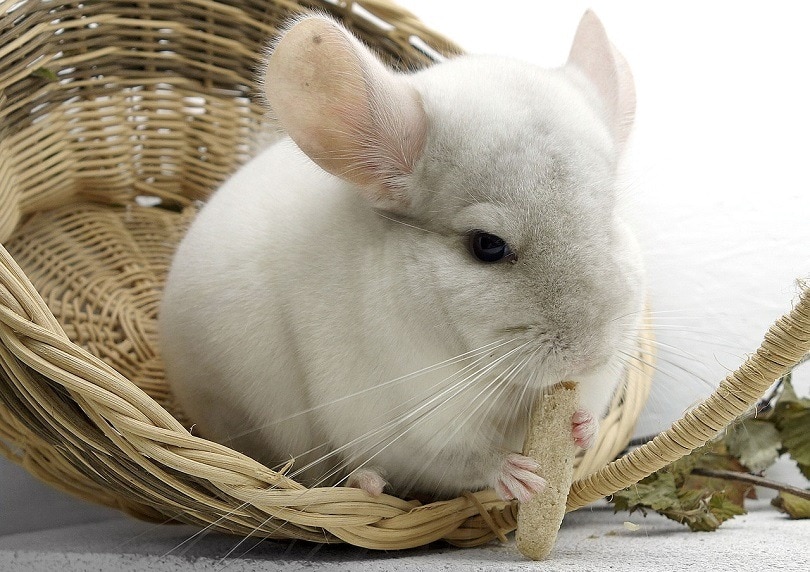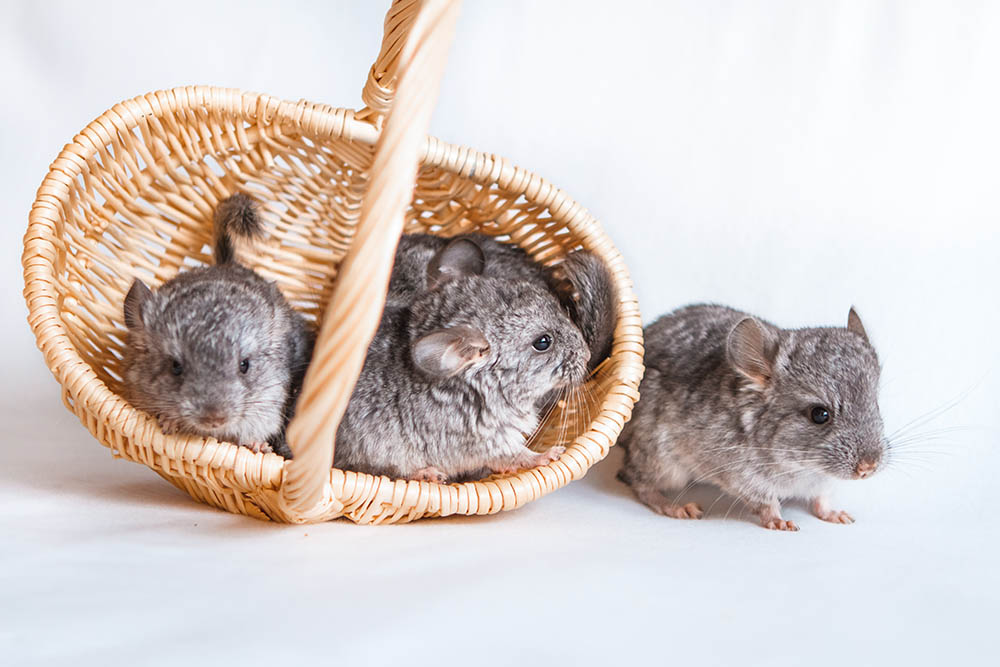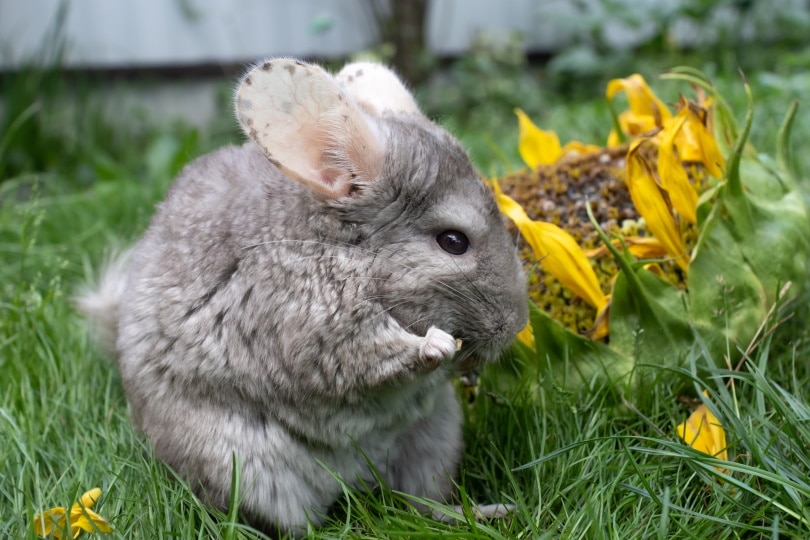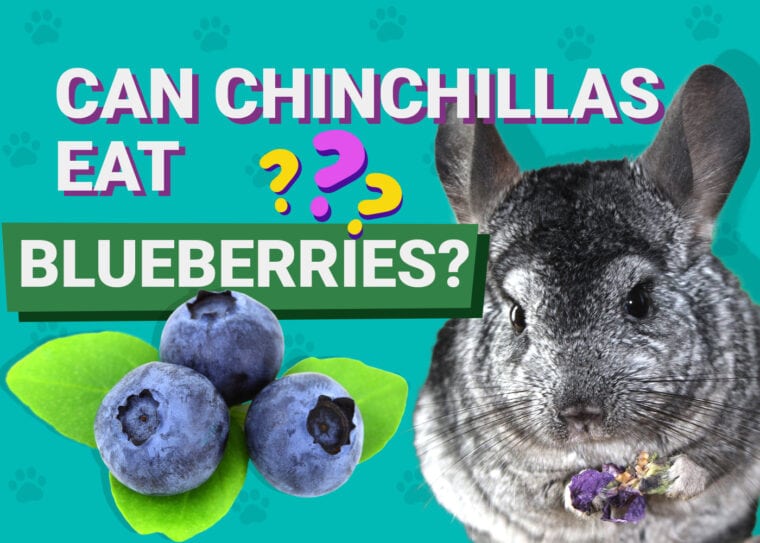
Blueberries are marketed as a “superfood” for humans. They contain antioxidants and other nutritional benefits for humans. Perhaps not surprisingly, they’re also frequently incorporated in human deserts as well.
Can chinchillas eat blueberries, and are they as good for them as they are for people? Yes, your chinchilla can eat blueberries as a treat, but a chinchilla should only eat a very small quantity of blueberries and other fruits.
We’ll look at the nutritional needs of chinchillas and why they should only eat blueberries and other fruits as an occasional treat.

Blueberries & Chinchillas
In good news, blueberries are not toxic for chinchillas and can be fed to them as a treat. Any nutritional perks that blueberries have would not really apply to chinchillas, as, given the small amount of blueberries they would be offered due to their relegation as a treat, the nutritional yields would be minimal and instead, they would be something safe that your pet might take a liking to.
It is important to reiterate that chinchillas should only be offered around a teaspoon of treats on a daily basis, if necessary. This equates to a very small amount – around 5 grams (0.17 oz), which would mean your cut-off would be around 1-2 blueberries at most. We’ll explore why such portion control is very important shortly.

Serving Your Chinchilla Blueberries
As a general rule, any fruit you offer your chinchilla should be prepared the same way you’d expect fruit to be prepared for human consumption
Remember that chinchillas may indiscriminately urinate and defecate on their food, and therefore, you should keep a close eye on the hygiene of their food bowl at all times.

Chinchilla Digestion and Nutrition
A pet chinchilla’s diet is primarily herbivorous. More specifically, they are folivorous (that is, they specialize in eating leaves). These rodents have teeth that are adapted to eating “rough” vegetation; their teeth have a very large surface area for grinding foods, and like other rodents, their teeth continuously grow throughout their lives. Consequently, they need a diet that promotes a great deal of chewing.
Feeding Habits
Their digestive system is particularly long for their body size, which allows them greater time to digest whatever they consume. They do almost all of their feeding (approximately 70%) at night. Like many other rodents, chinchillas produce two types of feces: the first is known as cecotropes, which they instinctively reingest for a second round of digestion. The second type is their normal feces, which they don’t reingest. Typically, they produce cecotropes in the morning (often between the hours of 8 AM to 2 PM), which means most of their day is spent redigesting what they ate the night before. They produce normal feces between 3 to 6 AM (before they go to sleep for the day).

Dietary Requirements
Chinchillas require a diet that’s very high in fiber. Approximately 70 – 80% of their diet should comprise high-quality hay. It is best to offer them an unlimited amount of hay. Commercial diets for chinchillas are often in the form of a pellet, and these can be used to supplement their diet, but should not replace hay.
Chinchillas should not be offered guinea pig pellets. Although guinea pig pellets are not inherently toxic for chinchillas, they are often fortified with vitamin C, a micronutrient that chinchillas don’t require in their diet (as they can make it on their own). This often results in a pellet that lacks the protein and fat content that chinchillas require.
The generally acceptable nutritional composition of chinchilla pellets is the following:
Generally, healthy adult chinchillas consume roughly 4-5% of their body weight in food per day. They should be offered fresh, clean drinking water at all times.
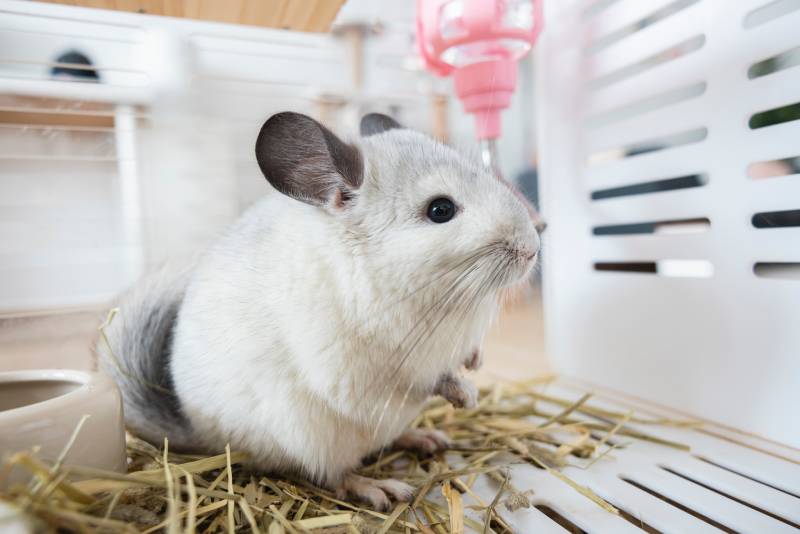
Treats & Chinchillas
The incorporation of treats into a chinchilla’s diet is considered controversial for several reasons, even if one factors in the nutritional balance. First, they are relatively shy when it comes to unfamiliar foods and might not accept a treat, even if it’s edible and safe for them. Second, most treats don’t require to be chewed too much, and therefore, are not advised as the lack of chewing may lead to dental problems for chinchillas. Finally, though one can hypothetically postulate a balanced diet that incorporates treats, in practice, this is very difficult to achieve.
In place of treats, most veterinarians advise hard-gnawing toys to help keep your chinchilla’s teeth in proper shape. Nonetheless, treats can be incorporated into a chinchilla’s diet in moderation – with the upper limit being around 1 teaspoon a day.

Conclusion
Though blueberries are safe for chinchillas to consume, they should only be considered an occasional treat and not a dietary staple in your pet’s diet. As always, please be mindful of the fact that it is best to consult your veterinarian for a meal plan that best suits your pet’s needs.
Featured Image Credit: Julian Ackroyd, Unsplash

